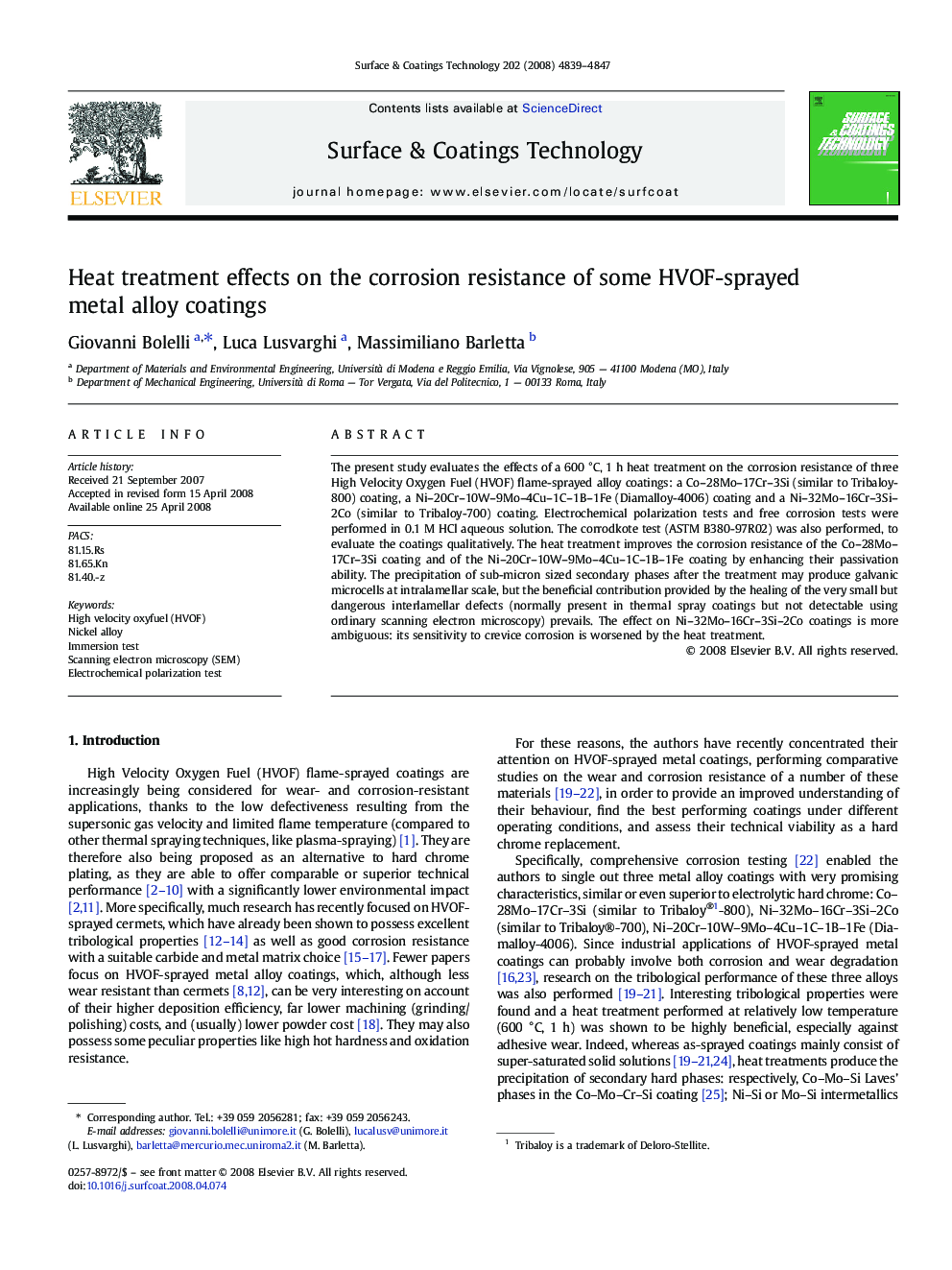| کد مقاله | کد نشریه | سال انتشار | مقاله انگلیسی | نسخه تمام متن |
|---|---|---|---|---|
| 1660647 | 1008408 | 2008 | 9 صفحه PDF | دانلود رایگان |

The present study evaluates the effects of a 600 °C, 1 h heat treatment on the corrosion resistance of three High Velocity Oxygen Fuel (HVOF) flame-sprayed alloy coatings: a Co–28Mo–17Cr–3Si (similar to Tribaloy-800) coating, a Ni–20Cr–10W–9Mo–4Cu–1C–1B–1Fe (Diamalloy-4006) coating and a Ni–32Mo–16Cr–3Si–2Co (similar to Tribaloy-700) coating. Electrochemical polarization tests and free corrosion tests were performed in 0.1 M HCl aqueous solution. The corrodkote test (ASTM B380-97R02) was also performed, to evaluate the coatings qualitatively. The heat treatment improves the corrosion resistance of the Co–28Mo–17Cr–3Si coating and of the Ni–20Cr–10W–9Mo–4Cu–1C–1B–1Fe coating by enhancing their passivation ability. The precipitation of sub-micron sized secondary phases after the treatment may produce galvanic microcells at intralamellar scale, but the beneficial contribution provided by the healing of the very small but dangerous interlamellar defects (normally present in thermal spray coatings but not detectable using ordinary scanning electron microscopy) prevails. The effect on Ni–32Mo–16Cr–3Si–2Co coatings is more ambiguous: its sensitivity to crevice corrosion is worsened by the heat treatment.
Journal: Surface and Coatings Technology - Volume 202, Issue 19, 25 June 2008, Pages 4839–4847